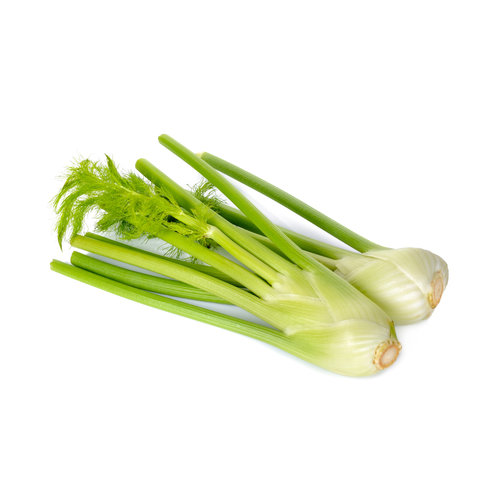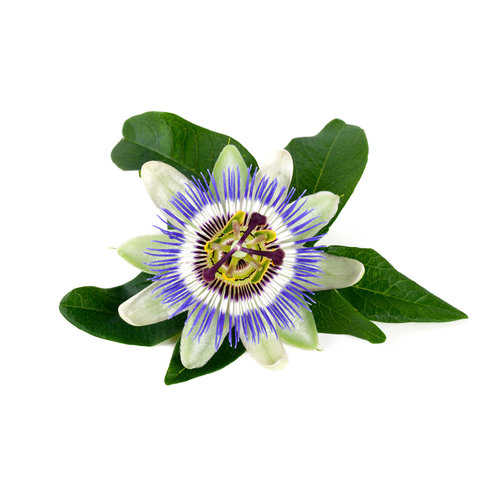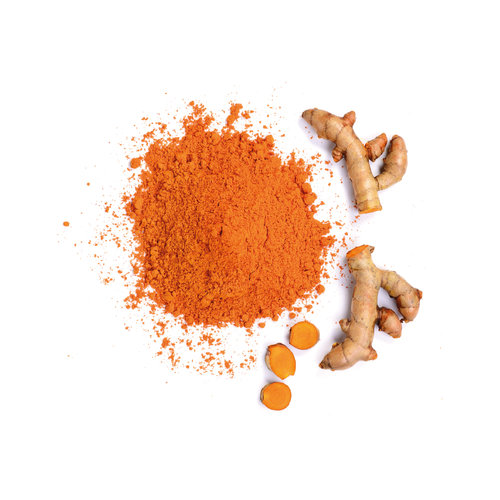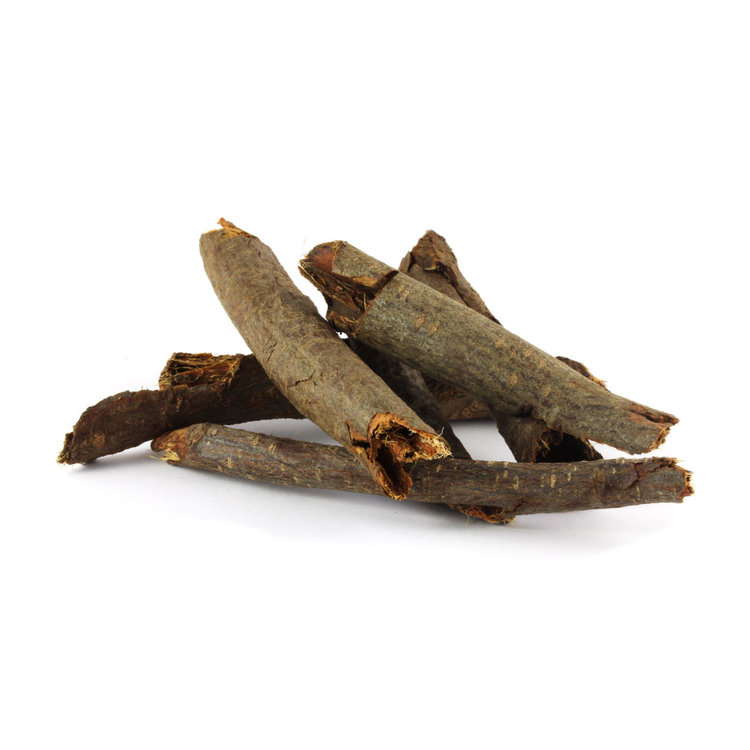Irritable bowel syndrome is a condition affecting the large intestine.
It’s referred to as a syndrome rather than a disease because there are no reliable diagnostic tests to identify it — diagnosis is made by ruling out other possibilities.
IBS can be frusterating, it wreake havoc on the digestive tract.
Here’s a brief guide to using herbs to support IBS symptoms.
What Is IBS?
Irritable bowel syndrome, or IBS for short, is a condition whereby the digestive tract has become inflamed and dysfunctional.
It’s a bit of an umbrella term, and can cover a range of conditions with a few different causes. It’s generally described as a widespread dysfunction of the digestive tract, leading to symptoms such as:
Constipation
Diarrhea
Excessive mucous production in the gut
Excessive flatulence or gas
Boating
Nausea
Vomiting
Stomach pains or cramps
Protruding belly
Sexual dysfunctions
Increased allergies or sensitivities
IBS is a very common condition, and is generally easily cleared up with diet and lifestyle changes.
For many individuals it is not easy to make these changes, however.
It must be stated that if a cure is to be found, they must ultimately make these changes. As with nearly all chronic (long term) conditions, the source of the problem must be addressed in order to correct the problem in its entirety.
Using treatments that only act as "bandaids" to hide the symptoms with very rarely correct the underlying problem. IBS is a case where this is especially evident.
Step 1: Diet
The food we eat has a direct effect on the health of the GI tract, and issues are common in the standard American diet or aptly named “SAD” diet. This diet includes a high intake of carbohydrates and sugar, high intake of trans fats, high red meat consumption, and low fruit and vegetable intake. There are a lot of different diet plans out there, but simply by including an abundance of fresh vegetables and fruit, reducing the intake of meats and sugars, and avoiding trans fats completely, is the simplest way to clean up a diet and treat or avoid these conditions.
Taking herbal supplements can go a long way however in correcting many of these conditions. Below, we will go through some of these common digestive disorders and consider a few of the best herbs for correcting the condition at its core, and treating some of the symptoms in the meantime.
These Dietary Changes May Include:
Reducing protein intake, or improving the quality of the protein source. Such as reducing red meat intake and consuming more plant based proteins and eggs. Hemp, soy, and pumpkin seed protein is especially high in quality.
Increasing fiber intake. This can be achieved through supplementation, or through eating more fiber rich fruits and vegetables. Herbs such as slippery elm (Ulmus fulva), and psyllium husk are very useful for this as well and can be taken as a capsule, or mixed into a smoothie or shake.
Increasing the amount of daily exercise. This can be anything from finding a sport to play on a regular basis, or simply going for a long walk once every day or two.
To improve this condition, and keep it from returning, it is important to stick to these lifestyle and diet changes, but can be sped up or assisted with a few common herbs.
Step 2: Carminatives (For Flatulence And Gas)
This is a class of herbs used to reduce gas, bloating, and flatulence, which can then have beneficial effects on nausea, vomiting, and belly pains as a result. These herbs are generally aromatic (have a scent) such as herbs from the mint family. They work by reducing the tension of the sphincters (valves) throughout the digestive tract, which allows excess air to leave and not build up pressure. This buildup of pressure can result in the bloating, and pain associated with this condition. Some of the best carminative herbs for IBS include:
1. Peppermint
(Mentha piperita)
Peppermint is great for reducing intestinal gases, and is in fact a delicious tea to drink either way.
Use about 5g herb, and allow it to steep in 500mL water for at least 10 minutes.
Avoid peppermint tea if you are suffering from heartburn as well however.
If you have heartburn, try taking chamomile or fennel seed instead.
Read More About Peppermint Here.
2. Fennel seed
(Foeniculum vulgare)
Fennel seed has a taste similar to anise and liquorice. It is one of the very best carminative herbs used for reducing the buildup of intestinal gas, cramping, and bloating.
Read more about fennel here.
3. German chamomile
(Matricaria chamomilla)
German chamomile, like peppermint and fennel, is great for relieving intestinal gas, it has the added benefit of being a mild sedative, which make german chamomile a great choice of herb to use before bed.
Make a tea by taking about 10g of dried leaves and infusing with 500 mL water for around 10 minutes.
As with any aromatic herb, make sure you cover the tea as it steeps so the essential oils do not escape.
It’s mainly these essential oils that are causing the reduction in intestinal gas so it is important to preserve them as much as possible. Avoid chamomile if you have a known allergy to other plants in the Asteraceae family.
Read more about German Chamomile here.
Step 3: Antispasmodics
(For Cramping And Abdominal Pain)
In IBS one of the issues is an increased tone, and spasming of digestive tissue. This factor is most common in stress related IBS and can cause the excessive buildup of gas as mentioned earlier, as well as constipation OR diarrhea, and abdominal cramping and pain. There are many powerful antispasmodic herbs available, which can reduce this spasming and tension of the digestive tissue enough to stop the pain, relieve the buildup of intestinal gas, and ease constipation or diarrhea. Some of the best herbs for this includes:
1. Passionflower
(Passiflora incarnata/edulis)
Especially great for nervous and anxious conditions that may be causing or exacerbating the condition.
Passionflower should be made into a string tea, using about 10g of herb, to 500mL water and consumed twice daily.
Alternatively a liquid extract or tincture can be used. Follow the directions on the label as the concentrations of these extracts can vary greatly. Passionflower is one of the safest herbs to use.
Read more about Passionflower here.
2. Wild Yam
(Dioscorea villosa)
This herb has a wide history of use as an antispasmodic, especially on the digestive tract. It has been used to relieve abdominal pain and nausea for a long time.
Step 4: Anti Inflammatories And Demulcents:
Inflammation is one of the main symptoms, and causative factors in IBS.
When tissue becomes irritated, through infection, dietary allergens, and chronic stress, the normal functioning of the tissue becomes affected.
The immune system is decreased as it tried to deal with the inflammation taking place in the bowel, which allow an easier infection throughout the body, digestive power is reduced, making consumed nutrients less available to the bodies cells, and pain and cramping can result as the damaged tissue signals the brain that something is wrong.
In sudden cases of inflammation, such as with an infection or direct damage to the gut, inflammation is a good thing. It is the beginning of the healing process and is in fact a necessary step.
However, with chronic, or long term inflammation and irritation, as is the case with IBS, this inflammatory state affects health in a much more negative way and can lead to conditions such as cancer and leaky gut syndrome.
In these cases it can be extremely beneficial to reduce the inflammation in the gut along with decreasing the cause of the inflammation to begin with such as by improving diet and decreasing stress.
A few great herbs to achieve this include:
1. Slippery elm bark
(Ulmus fulva)
This is one of the best demulcent herbs.
It can be consumed in the form of capsules, or mixed into smoothies or shakes. The actions of this herb are to coat, and sooth the digestive tract, reducing inflammation, and promoting healing of the digestive tract.
Read more about slippery elm here.
2. Turmeric
(Curcuma longa)
Turmeric has received a lot of attention lately for its anti inflammatory effects, and for good reason.
It has an amazing ability to reduce inflammation throughout the whole body, but is especially effective in the digestive tract.
Turmeric is considered a tonic and adaptogen, and as such can be consumed safely everyday.
It has a great flavour and can be used in cooking or on its own in the form of a tea or capsules.
3. Marshmallow
(Althaea officinalis)
Marshmallow is similar to slippery elm in that it has a strong demulcent, or digestive soothing action.
As such it improves the mucous membranes of the digestive tract, and promotes healing while simultaneously reduces inflammation.
Marshmallow leaf or root can be used and is best taken in the form of a tea.
Just as with slippery elm, try to avoid taking marshmallow at the same time as food, since its coating action can inhibit the absorption of nutrients.
This is not a problem as long as food and marshmallow are taken about 2 hours or more apart from each other.
Read more about marshmallow here.
Step 5: Laxatives And/Or Antidiarrheal Herbs
With IBS, both diarrhoea, and constipation are usually felt.
By correcting the root of the condition itself as through diet, lifestyle changes, and many of the herbs listed above, these conditions will go away on their own.
However, certain situations may require the use of a laxative or antidiarrheal such as with excessive diarrhoea or long term or painful constipation.
It’s never a good idea to take these sorts of herbs for a long period of time (more than a few days) and these actions are not a cure, but rather a crutch.
They will help you through some particularly painful or uncomfortable situations in a pinch, but will only make the situation worse if taken too often.
Stimulating laxatives for example are actually addictive, and if used for too long, can cause serious constipation in the long run.
For short term use however while the improved diet and additional herbal medicines take effect, there are a few great laxative and antidiarrheal herbs that should be considered:
Laxatives
1. Cascara sagrada
(Rhamnus purshiana)
This is one of the big guns in terms of treating constipation, if you are suffering extremely painful constipation, or constipation that has been going on for more than a few days, this herb will almost always do the trick.
Use it by taking as a capsule, or in the form of a tincture by following the dose on the label.
It is considered a stimulating laxative, and as such forces the muscles in your intestinal tract to contract.
As such, do not use cascara when there is excessive cramping or diarrhea, as it will make the situation much worse.
Read more about Cascara sagrada here.
2. Licorice
(Glycyrhiza glabra)
This herb is a much gentler laxative, and is useful in conditions where constipation is present, but not creating a significant amount of pain, it does not work as strong as cascara but has much fewer side effects and can be used a bit more often without causing problems.
Antidiarrhea
1. Oak Bark or Oak galls
(Quercus robur)
Oak bark and oak gall is highly astringent, and as such is very useful for acute diarrhea. T
o take it, make a strong decoction and drink about a cup 2-3 times a day as needed. This is one of the best herbs to use in cases of acute, and drastic diarrhea, but should not be relied on for long term.
2. Yerba maté
(Ilex paraguariensis)
Yerba maté is a South American tree, whose leaves are very commonly used in the form of a tea.
Though the most common use is for its stimulating and tonic effects, it’s highly astringent and useful for cases of chronic diarrhea and offers much gentler support for diarrhea. It also has potent anti inflammatory effects and as such is useful or all sort of inflammatory conditions in the body as well.
To take this herb, simply make tea using about 10 g of herb to about a cup of hot water and allow to sit for 10 minutes or so and consume. Drink 2-3 of these a day as needed.
Read more about Yerba maté here.






















